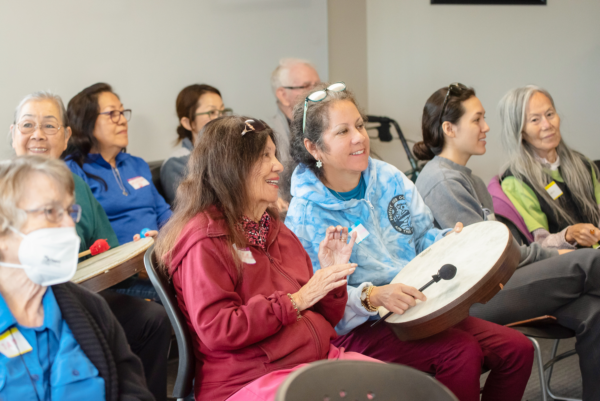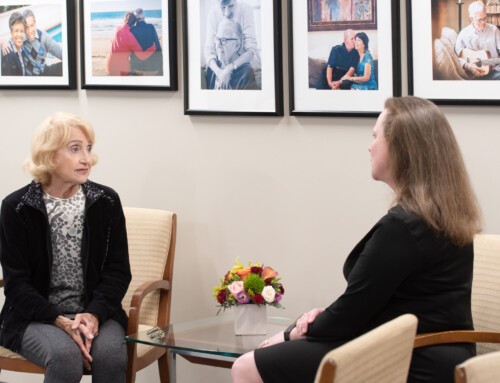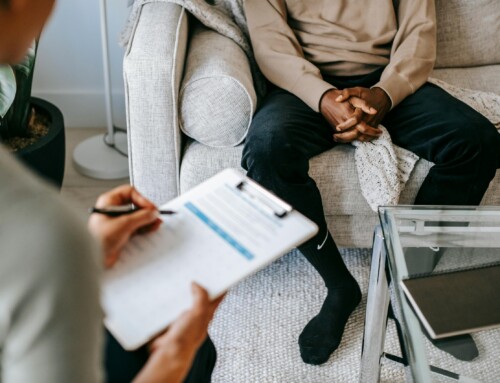
People living with dementia need to be active and should be encouraged to do things they enjoy. However, it may not be easy for them to plan their days and do different tasks. They may have trouble deciding what to do each day or how to get started with a task or activity, but they can still find pleasure in doing something familiar to them.
Questions to Ask Yourself
- How did my person feel valued and appreciated throughout their life?
- What did my person like to do in their free time?
- What made my person feel respected?
- What helps them to feel confident and secure?
Creating a Comfortable Environment
- Decide if he or she can complete the activity alone or if they need help.
- Make sure activities are an appropriate length of time.
- Complete activities around the same time each day.
- Try to identify which words, sounds, and places encourage participation.
- Determine what activities they are able to do based on sensory abilities and motor skills.
Making Activities Meaningful
One of the most challenging aspects of providing care for someone living with dementia is to develop daily routines and activities that are interesting, meaningful, do-able, and valued by the person with the disease. There are four categories of activities that fill our lives and help us feel important:
- Work – Work activities are those that we may have used to show ourselves and others we are competent, skilled, valued, and talented members of our families and communities. It will help the person develop a strong feeling of belonging and membership to this new community.
- Example: Reminisce about the person’s favorite dish and find ways to allow them to help, like washing, peeling and chopping the vegetables, stirring the pot, setting the table, etc. Replicating tasks of “filing, organizing, cleaning.” Offering to let them fold laundry, or build projects (Lincoln Logs, small airplanes/cars). Provide the job responsibility of counting/collecting change; caring for an object (doll, stuffed animal).
- Self Care – Self care activities are those tasks that we do in order to take care of ourselves, our bodies, and our homes. Encouraging client’s to participate actively in these tasks and providing the support needed, will ensure the person maintains dignity and sense of adulthood.
- Example: Listen to their favorite music while taking a relaxing bath. Light some candles for a pleasant smell or use bath products that enrich the experience. Take them out to get their hair cut, or nails cleaned. Buy a favorite food or dessert to indulge in.
- Leisure – Leisure activities are frequently seen as the highlight and most fun part of our day. They are activities that we engage in because we like them, get pleasure from them and enjoy doing them with or without others.
- Example: Sit outside and listen to the birds while having the morning coffee. See how many different birds you see and find the best colored bird. Take multiple walks throughout the day and bring some hand-picked flowers to a neighbor. Gardening, cooking, crafting. Watching sports on the television or at the local park. Playing with small children. Participating in laughter yoga. Sing songs or dance to well-known songs.
- Rest – Rest activities promote re-energizing and revitalization. These activities help us to find inner peace, to relax, and to feel ‘better.’
- Example: Take a stroll along the beach or through a local park. Massage lotion into their hands/feet. Cuddle under a cozy blanket and watch classic films. Take an afternoon nap. Play calming tunes and practice breathing techniques. Engage in stretching, balance, exercise.
View our free services like education classes, social activities, support groups, and more that provide additional caregiving tips for managing everyday life. We also have activity kits available for caregivers to do with the people living with dementia they’re caring for. If interested in receiving a free kit or have questions, email us at info@alzsd.org.
Content adapted from the Teepa Snow’s Positive Approach method. Educational content used with permission and based on the GEMSTM and the techniques, strategies and overall approach to care created and developed by Positive Approach, LLC. www.teepasnow.com. GEMSTM and POSITIVE APPROACHTM are trademarks of Positive ApproachTM, LLC.




